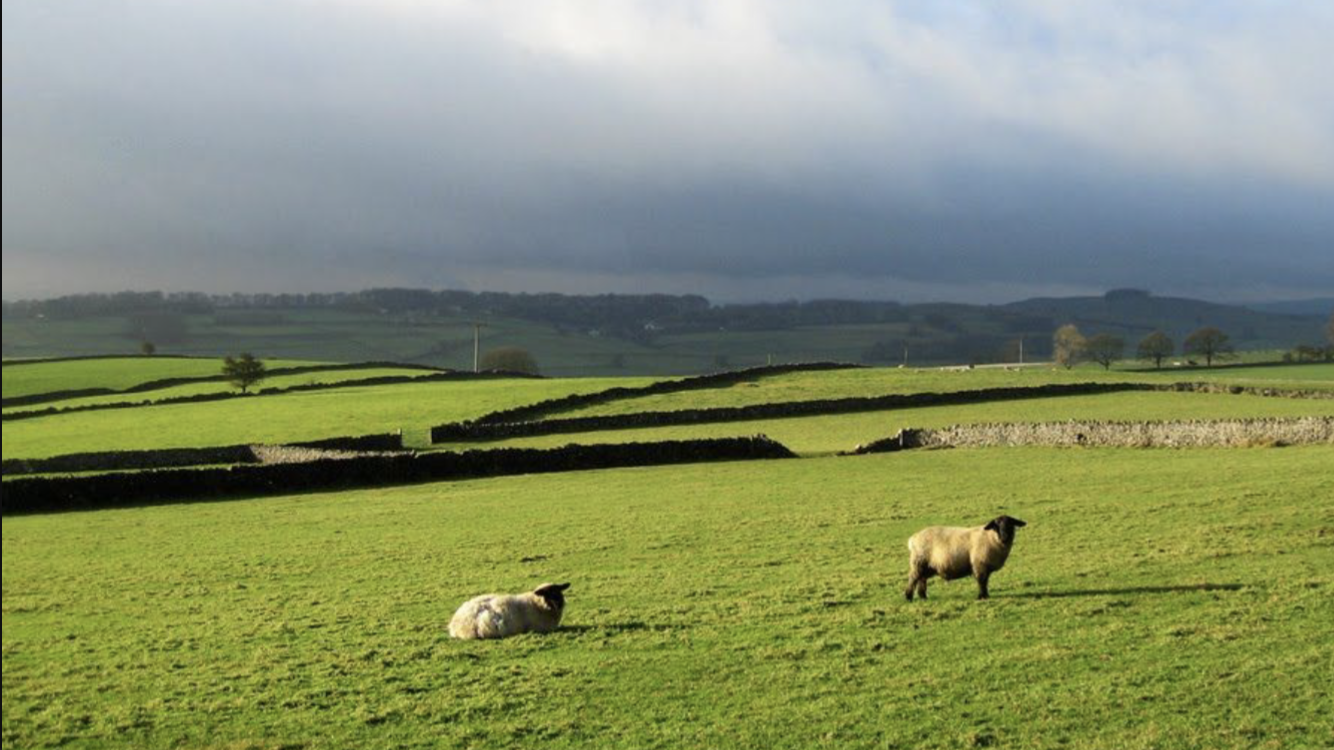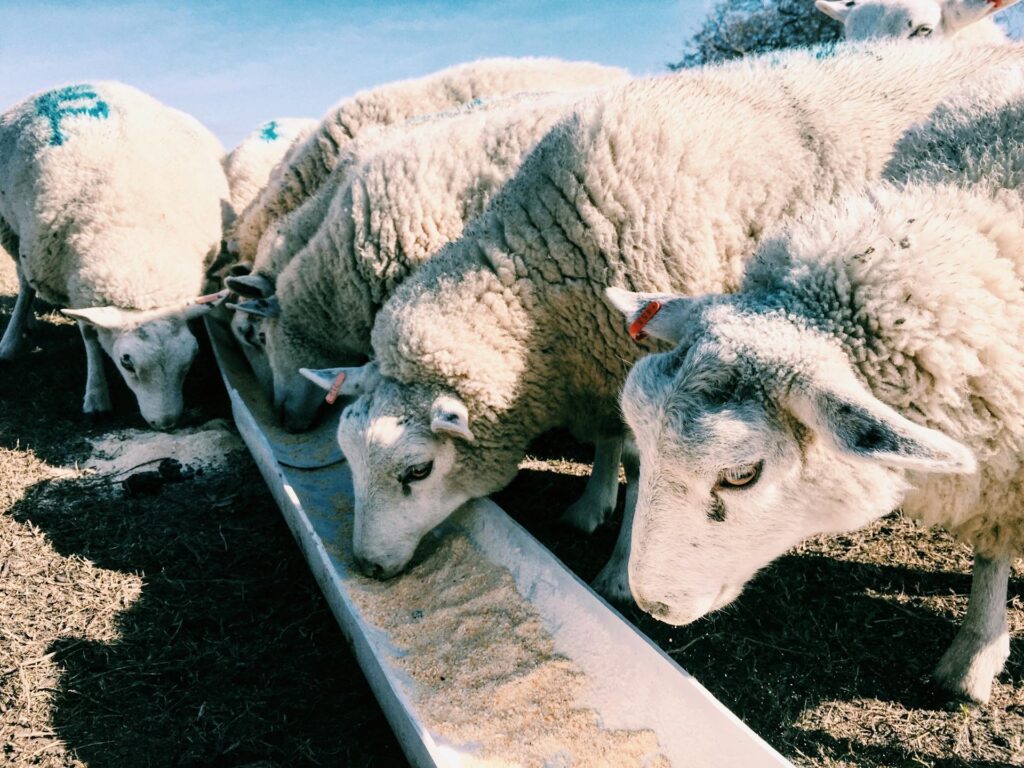Address
Chapel en le Frith, High Peak, Derbyshire
Work Hours
Monday to Friday: 9AM - 7PM
Weekend: 10AM - 5PM


Feeding and Nutrition – Keeping Your Flock Healthy and Productive
Part 3
Proper feeding and nutrition are essential for maintaining a healthy and productive dairy sheep flock. A well-balanced diet not only supports high milk yields but also ensures the overall well-being of your sheep. By focusing on natural forage and avoiding corn and soy, you can create a sustainable feeding plan tailored to the needs of your flock.
Grass forms the foundation of a dairy sheep’s diet and is ideally provided through high-quality pasture. Diverse pastures containing alfalfa and clover are particularly beneficial, as they are rich in protein and essential nutrients that support lactation. For sheep kept on pasture, pasture rotation is key to maintaining both the health of the flock and the land. Dividing grazing areas into sections and allowing time for regrowth helps prevent overgrazing and ensures that sheep always have access to fresh, nutritious forage.
Minerals play a crucial role in the diet of dairy sheep. Providing access to a free-choice mineral mix specifically designed for sheep ensures that your flock receives essential trace elements such as selenium, copper (in appropriate amounts), and zinc. Loose minerals are preferred over blocks, as sheep are more likely to consume the amount they need. Always ensure that mineral supplements are free of soy and other additives that may not align with your feeding principles.
During winter or times when pasture is unavailable, a dry lot system can be used. This involves feeding sheep hay and other stored forages to meet their nutritional needs. High-quality grass hay is ideal, with alfalfa hay providing an additional protein boost when needed. Silage can also be used but must be handled carefully to avoid spoilage, which can lead to health issues. When transitioning sheep from a dry lot diet to fresh pasture in spring, it is important to do so gradually. Begin by feeding your sheep well before allowing them onto fresh pasture. This practice helps prevent bloat, a potentially dangerous condition caused by a sudden intake of lush forage.
The transition period from winter to pasture-based feeding should be managed carefully. Start by introducing sheep to pasture for short periods, gradually increasing their time on fresh grass over a week or two. Providing a consistent supply of dry forage during this time helps balance their diet and reduce the risk of digestive upset. Similarly, changes in feed, whether introducing new hay or switching mineral mixes, should be made gradually to allow their digestive systems to adapt.
For dairy sheep, ensuring access to clean, fresh water is just as important as providing nutritious feed. Lactating ewes, in particular, require substantial amounts of water to sustain milk production. Regularly check and clean water troughs to prevent contamination, as poor water quality can quickly lead to health problems.
By focusing on a natural, corn- and soy-free diet that prioritizes high-quality forage, minerals, and careful management practices, you can maintain a productive and thriving flock. A well-fed flock not only produces better milk but also has greater resilience against disease and stress, ensuring the long-term sustainability of your dairy sheep farming operation.
Coming Next:
Part 4: Milking and Milk Handling – Best Practices for Quality and Hygiene. https://derbyshirefarmers.com/sheep-milking-and-milk-handling/